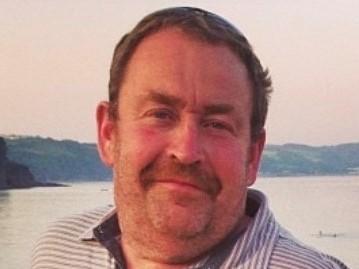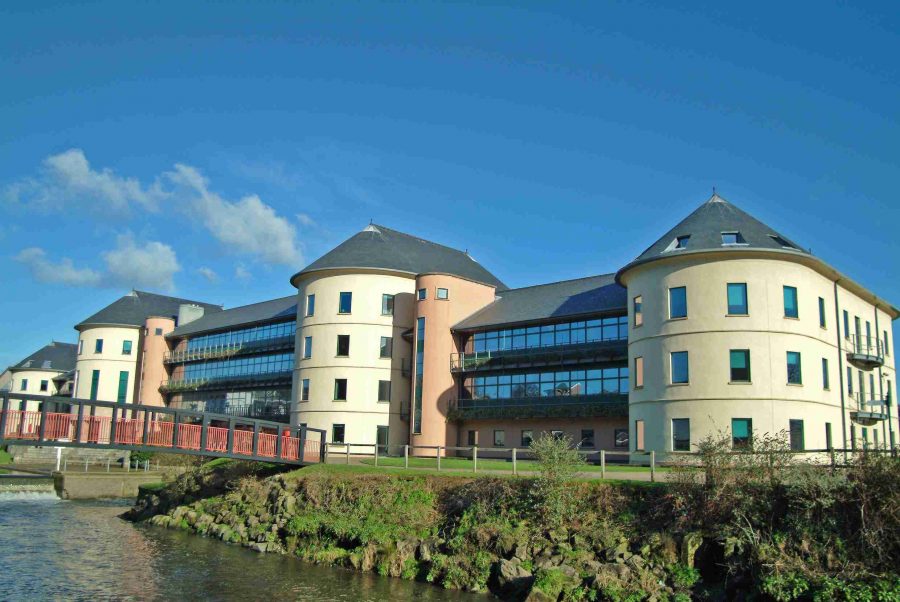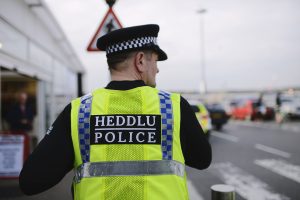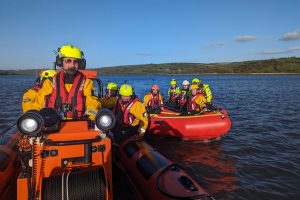JONATHAN HUW HOWELLS was a man who took great pride in his work.
His machinery was immaculately maintained, and he always carried out his mechanical and agricultural duties to a high standard.
But on the afternoon of November 8, 2020, Mr Howells touched a control on his Merlo Telehandler causing the boom to rise towards an 11,000-volt electric cable. Even though the boom didn’t touch the cable, its tremendous voltage caused an arcing effect which electrocuted Mr Howells to death. The intensity of the charge blackened the step leading up to the Merlo, which was where Mr Howells had been standing, together with another piece of ground alongside the vehicle; both the front and back wheels of the Marlo had caught fire.
This week a jury inquest at County Hall, Haverfordwest, recorded a verdict of accidental death after considering the tragic circumstances.

“Everyone was proud of the work that Huw did and the care that he took,” his wife, Catherine Howells, told this week’s inquest at Pembrokeshire Coroners Court. “Two days earlier he’d been trimming some trees and had worked closely with Western Power Distribution concerning the electric cables overhead. This was not something he took lightly. I can’t understand why this has happened.”
A family friend, Emrys Davies, had asked Mr Howells to trim some trees on his farm at Dan y Coed, Llawhaden, as he wanted to install a care-line telephone. Mr Howells left his home at Gellyrenwyn, Gilfach Hill, Lampeter Velfrey, at around 9.30am and spent the day cutting back branches assisted by another close friend, Brian Twoose, a mechanic, Brian’s wife, Linda, and her sister.
At around 4.20 pm they finished their work, however Mr Davies mentioned that some more trees on his farmyard needed trimming. Mr Howells positioned his Merlo near to the trees and extended the boom to within two feet of the 11,000-volt cable.
But in his statement to the inquest, Health and Safety electricity expert Mr Stephen Reeves said this was dangerously close. “It’s likely that anyone who comes into close proximity to a cable with that magnitude of voltage would be electrocuted.”
He went on to say that Western Power Distribution guidelines advise people to carry out work within a three-metre exclusion zone from 11,000-volt cables such as the one at Dan y Coed. To draw a comparison, Mr Reeves said the voltage in commercial and domestic buildings is a mere 230 volts.
“Western Power guidance doesn’t seem to have been followed in this very tragic case,” he concluded.
Meanwhile, in his written statement to the inquest, Mr Twose said that Mr Howells was happy with the height of the boom. “We were watching, to make sure it wasn’t touching and when it was about two feet from the cables, we all agreed not to go any higher.”
After stepping down to check whether it would be possible to cut the branches, Mr Twose saw Mr Howells return to the Telehandler “He looked into the cab from outside and reached in. I don’t know what he did, but the boom moved upwards towards
the power line. I screamed at him to stop but by now he was standing completely still, holding onto the machine bolt upright.”
Eventually Mr Howells was seen to loosen his grip and collapse to the ground. A postmortem confirmed that he had died from cardiac arrest and electrocution.
After considering the evidence, Acting Senior Coroner Mr Paul Bennett said that given Mr Howells’ long-standing experience in operating equipment such as the Merlo and in cutting down branches, he would have been aware of Western Powers’ guidelines. “It’s highly likely that he had used the guidance in the past but on this particular occasion, it might well have been a lapse of concentration where he forgot about where he was in relation to the boom. Something occurred which caused the electric to come within that exclusion area.”
Why The Herald covers inquests
We understand that the death of a loved-one is an incredibly painful time for their friends and relatives. As journalists, we have all suffered loss and the grief that goes with it so we can understand how traumatic it can be if that death is unexpected. Covering inquests is not a job any journalist relishes. But it is a vital part of our job and one that can uncover wrongdoing, can expose flaws in systems and can ultimately help families discover the reasons behind the death of their loved-ones.
What are inquests and why are they held?
An inquest is a formal investigation overseen by a coroner to establish how someone died. Inquests are held where a death was sudden and the cause is unknown, where someone has died an unnatural or violent death, or where someone has died in a place or circumstance where there is legal requirement to hold an inquest, for example in prison custody or while sectioned under the Mental Health Act.
The purpose of an inquest is to find out the identity of the deceased as well as where, when and how they died. It does not apportion blame.
Why do journalists go to inquests?
Anyone can attend an inquest. Since the start of the pandemic, some inquests are available on videolink so you may not have to attend in person and you may not notice that a journalist is attending via videolink. But all inquests are held in public and therefore all the information you hear at an inquest is already in the public domain.
We understand that there may be details heard at inquests that are very private, but nevertheless contributed to the reasons behind the death. We will do our very best to ensure that these details are reported sensitively and accurately.
Deaths affect communities as well as families and their repercussions can often be wide.
Why is coverage important?
It is in the public interest that people are able to hear the circumstances behind any untimely death because there may have been unfair or inaccurate rumours in the community that can be cleared up by accurate and concise coverage of the inquest.
There are many lessons that can be learned from inquests. Drawing the attention of the public to the circumstances surrounding someone’s death could be key to preventing similar deaths in the future. Explaining how drug or alcohol abuse led to someone’s death may encourage others to seek help for addiction. Showing how the high speed of a driver caused a fatal crash may act as a warning for those who drive too quickly. Reporting on the details what happened before a person took their own life may raise warning flags for the loved-ones of others who may be considering the same.
There is a real chance that coverage of inquests can prevent similar deaths in the future.
Coverage of inquests can often provide a platform for families to campaign about issues they’ve encountered or can provide relief that wrongdoing has been publicly exposed.
Because inquests are held in open court, they are subject to the principles of open justice and transparency which are a cornerstone of our justice system. Because the judgements of a coroner are not usually widely available elsewhere, newspaper reports may be the only comprehensive, publicly accessible record of the proceedings.
Why didn’t you tell me there was going to be a story online?
Before any inquest a coroner’s officer should always tell families that the media will be present at an inquest. You should always assume that an inquest is going to be covered by the press or wider media and that coverage will be online a short time after the verdict.
We know that the facts outlined at inquests can often be stark or upsetting and that the details sometimes do not represent the essence of a person or the many great things they did in their lives.
We are always keen to speak to relatives so that they can add tributes, or can tell us why their loved-one was so special to them. We are always happy to include extra detail in our reports to ensure that we do justice to their memory.
You can always email or call us us with anything you want us to add, or even contact us ahead of an inquest.
If you do not want to speak to us, then we will respect that. We will not approach you again if you tell us, you do not want to speak to us.
Unfortunately, we will not remove reports of inquests from our website but we are always happy to correct genuine typographical errors.
We do our best to delete any inappropriate comments on our own Facebook page but if you spot any that we have missed under the report of an inquest then please get in touch with us.
What are the journalistic guidelines around covering inquests?
As professional journalists we do not include all the evidence heard at an inquests and we do make editorial judgements in order to summarise the evidence heard.
But we won’t ever publish sensationalist coverage and we will always do our best to be as sensitive as we can, while reporting the facts to maintain the principle of open justice.
There are specific guidelines around the reporting of suicides which mean that journalists cannot provide excessive detail around the method of suicide. You can find details here.
The Independent Press Standards Organisation (IPSO) provides best-practice guidance to journalists around the coverage of inquests. This leaflet explains more about these guidelines.


















